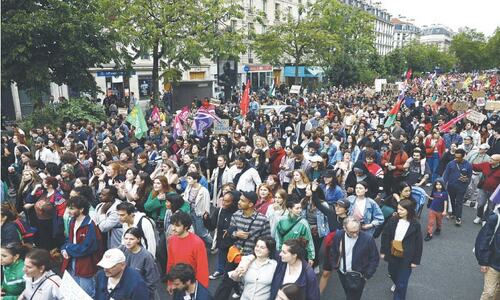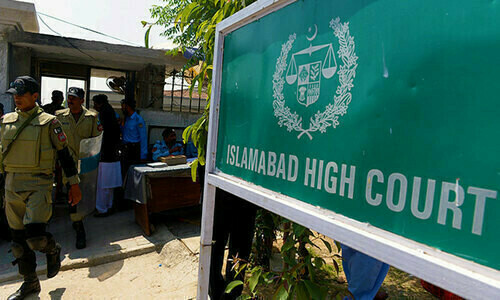 KUALA LUMPUR, Dec 14: East Asia’s first summit ended on Wednesday with an agreement to hold annual talks on strategic issues such as trade and security — and a rare handshake between the leaders of China and Japan.
KUALA LUMPUR, Dec 14: East Asia’s first summit ended on Wednesday with an agreement to hold annual talks on strategic issues such as trade and security — and a rare handshake between the leaders of China and Japan.
The gesture, after months of feuding between Asia’s two biggest economies over their wartime past, came after 16 leaders signed a declaration calling for annual talks on issues that also included health scares such as bird flu and energy security.
“We have all agreed that East Asian community will be a reality in the future,” Malaysian Prime Minister Abdullah Ahmad Badawi, who chaired the half-day talks, said.
But he drew a distinction between what he saw as the core members of an East Asian community — Southeast Asia and North Asia — and countries such as India, Australia and New Zealand, which he said did not belong geographically to East Asia.
“I don’t know how the Australians will regard themselves as East Asians, or New Zealanders for that matter,” he said, adding these countries instead shared common interests with East Asia.
The summit brought together leaders of the 10 Southeast Asian nations that convened it, plus China, Japan, South Korea, India, Australia and New Zealand — a gathering that represented about half the world’s population and a fifth of global trade.
Russian President Vladimir Putin made a brief speech to the summit, and stated Moscow’s desire to become an official member, a Japanese official told reporters. A decision on Russia’s inclusion in the summit would be made next year, Mr Abdullah said.
Chinese Premier Wen Jiabao said he had assured the summit of his country’s commitment to peaceful development and played down concerns Beijing might want to dominate the new forum, noting that US allies Japan and Australia were members.
“It should be open, welcoming Australia, New Zealand, India and Russia’s participation and also strengthens the contact between the US, the EU and other countries,” Mr Wen told reporters.
“That way it will give more meaning to the East Asia summit.”
OLD WOUNDS: The summit had fuelled speculation it would take the first step toward a huge pan-Asian free-trade area. But expectations were set low, partly due to Japan-China bickering.
Shortly before the leaders of the two countries shook hands, Japanese Prime Minister Junichiro Koizumi used Mr Wen’s pen to sign Wednesday’s pact, having leaned across and asked to borrow it from the Chinese premier.
On the handshake between Mr Wen and Mr Koizumi, Chinese Foreign Ministry spokesman Liu Jianchao said: “Everybody saw clearly what happened at the meeting place, but China’s attitude toward the question of history between China and Japan has not changed.”
That was a reference to Mr Koizumi’s visits to Tokyo’s Yasukuni shrine, which honours some convicted war criminals along with Japan’s 2.5 million war dead — the heart of the dispute.—Reuters













































Dear visitor, the comments section is undergoing an overhaul and will return soon.